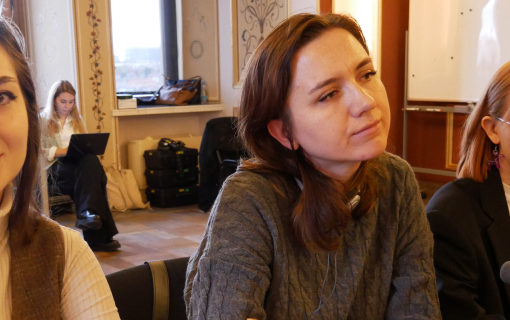Promoting Gender Inclusion with Nepal’s Election Commission
In the last decade, Nepal has made significant progress in promoting gender equality and women’s political participation, including adopting women’s rights-focused international and national instruments as well as a gender quota in the 2007 interim Constitution. Despite these steps, women continue to face barriers to active and equal political and civic participation. In Nepal’s 2013 Constituent Assembly election, women accounted for only 10.8 percent of the first-past-the-post (FPTP) candidates and won only ten of the 240 seats awarded through the FPTP voting.** Despite adoption of a Gender and Inclusion Policy in 2013, women continue to be underrepresented at all levels within the Election Commission of Nepal (ECN), due in part to the fact that the ECN does not have full authority to hire its own staff. More needs to be done to ensure that women are able to actively participate throughout the electoral process.
Improving women’s civic and political participation in Nepal requires targeted and widespread interventions. Through the U.S. Agency for International Development-funded “Strengthening Political Parties, Electoral and Legislative Processes” (SPPELP) project, the International Foundation for Electoral Systems (IFES) works with the ECN and civil society to expand the political participation and civic engagement of all Nepalis, including youth, ethnic minorities, women and people with disabilities. As part of its efforts to improve gender equality and inclusion as a cornerstone of resilient democracy, IFES is working with the ECN to establish a Gender and Social Inclusion (GESI) Unit. As a stand-alone entity, the ECN’s GESI Unit aims to strengthen gender mainstreaming mechanisms, increase women’s representation, systematize gender training and capacity building, and build gender-sensitive perspectives throughout Nepal’s electoral process.
As a first step in operationalizing the GESI Unit, in July 2014, IFES provided an international gender expert to work directly with the ECN to develop a Gender and Inclusion Strategic Plan and Action Plan. The Strategic and Action Plans provide a foundation to guide the ECN’s implementation of GESI Unit priorities. Building on this effort, IFES promoted the integration of members of the ECN’s various departments as well as representatives from marginalized communities as active members of the GESI Unit.
In addition to supporting the strategic development of the GESI Unit itself, IFES developed a comprehensive booklet –Gender Equality and Election Management Bodies: A Best Practices Guide – to promote effective integration of the GESI Unit’s gender priorities throughout the ECN’s work. The booklet, which highlights international and local best practice as well as key recommendations for integrating women throughout the electoral process, has been translated into Nepali. In addition to producing practical tools and resources, IFES also worked with the ECN to organize a series of gender-related events to inform a broad group of electoral stakeholders about the establishment of the ECN’s GESI Unit and conceptualization of gender mainstreaming and help strengthen the GESI Unit’s role as an electoral resource. Over the course of the last year, IFES worked to bring together hundreds of participants including political party representatives, District Election Officers, legislators, ministry representatives and civil society members to expand understanding of the GESI Unit’s role and commitment to women’s equal participation in electoral and political processes.
As one of the few election management bodies with a dedicated gender unit, the ECN has an important opportunity to serve as a model to other state institutions inside Nepal as well as a leader in gender equality and women’s rights in the international electoral sphere. Recognizing this opportunity, IFES is providing targeted support to contribute to the institutionalization of the GESI Unit as a sustainable resource for women’s empowerment and gender equality throughout Nepal’s electoral process.
**Nepal has a parallel electoral system of first-past-the-post (FPTP) and proportional representation. Due in part to an electoral quota that mandates that women make up at least 33 percent of candidates for the FPTP and proportional representation system combined, more female candidates were fielded and elected through the proportional representation than FPTP. In total, women make up 29 percent of the Constituent Assembly representatives.









